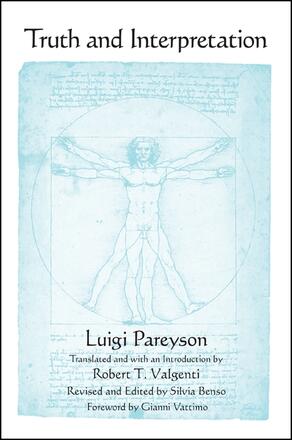
Truth and Interpretation
Alternative formats available from:
A resolute defense of philosophy and hermeneutics against the threats of dogmatism and relativism.
Description
Luigi Pareyson (1918–1991) was one of the most important Italian philosophers to emerge after World War II and stands shoulder to shoulder with fellow hermeneutic thinkers Hans-Georg Gadamer and Paul Ricoeur. The product of a well-developed theory of interpretation that stretches back to the late 1940s, his 1971 masterpiece Truth and Interpretation provides the historical impetus and theoretical framework for the questions of existence, art, and politics that would motivate his most famous students, Umberto Eco and Gianni Vattimo. In a time when the meaning of truth as an interpretation is challenged by the chaotic din of media on the one side and the violent force of absolute claims from science, religion, and political economy on the other, Pareyson's meditation on the value of thinking that is shaped by the traditions of philosophy and yet responds to contemporary demands remains timely and pressing more than forty years after its initial publication.
Robert T. Valgenti is Associate Professor of Philosophy at Lebanon Valley College. Silvia Benso is Professor of Philosophy at the Rochester Institute of Technology.